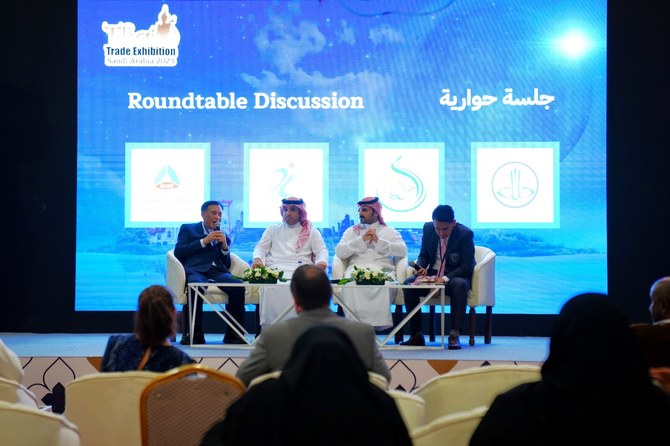Saudi Arabia has stepped up measures to increase the scope of halal foods following the partnership of Saudi Standards, Metrology and Quality Organization, also known as SASO, with several entities, the agency said.
“More than 60 accredited entities from around the world work with us in the halal sector,” Nawaf Al-Shahri, head of the conformity assessment body acceptance department at SASO, told Arab News.
This information was revealed on the sidelines of the Thai Trade Exhibition Riyadh 2023, a four-day event that began on Aug. 27 at the Riyadh International Convention & Exhibition Center.
Al-Shahri further elaborated that SASO’s primary role in this sector involves accrediting entities responsible for issuing certificates for halal products beyond the Kingdom’s borders.
This responsibility complements the Food and Drug Authority’s task of certifying imported products in Saudi Arabia.
The authority is currently assessing the competence of these entities and will subsequently grant them a certificate of acceptance based on their qualifications. The Halal Center will then oversee their operations, both within their offices and in practical settings.
Winai Dahlan, founding director of the Halal Science Center, Chulalongkorn University, highlighted that there has been a noticeable increase in interest in halal meat among Thais in recent decades.
In 2003, the establishment of the cabinet marked a significant milestone in the evolution of halal products in Thailand.
He indicated that the growing interest in halal meat among Thais is fundamentally rooted in religious considerations.
In 1995, he founded the Halal Science Center at Chulalongkorn University to create a hub for the advancement of halal science in Thailand.
The principal duties of the center encompass the research and development of halal science and technology aimed at supporting the expansion of the industry while ensuring the quality and safety of the specialized products.
The halal products sector stands as one of the world’s fastest-growing industries, with a projected 6.1 percent increase in spending on food and beverages, anticipated to reach $1.9 trillion by 2023.
Islamic spending on halal pharmaceuticals was $87 billion in 2017 and is expected to reach $131 billion by 2023. Meanwhile, spending on cosmetics was $61 billion in 2017 and is projected to reach $90 billion by 2023.
Dr. Yousuf Al-Harbi, director of the Halal Center, affirmed that halal meat is a societal norm in Saudi Arabia.
He pointed out that the center aims to meet halal food requirements, adding that they are continually confident that “any local product we guarantee is 100 percent halal.”
“We have several initiatives, especially regarding the reliability of Halal food, from farm to consumer table, confirming that their experience in this area is thriving,” said Al-Harbi.
He said they are committed to ensuring that meats and poultry are slaughtered and stored according to Islamic law.
source/content: arabnews.com (headline edited)
___________

This discussion was held at the Thai Trade Exhibition Riyadh 2023, a four-day event that began on Aug. 27 at the Riyadh International Convention & Exhibition Center. (Huda Bashatah
_________________
SAUDI ARABIA